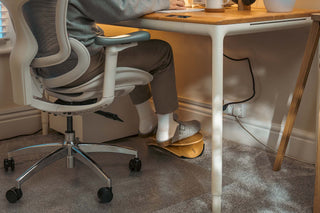In today's productivity-obsessed world, the idea of planning free time might seem counterintuitive. However, intentionally organizing leisure activities is crucial for maintaining a healthy work-life balance, recharging your mind, and enhancing your overall well-being.
The Paradox of Free Time
While unplanned free time seems like a luxury, it often leads to feelings of dissatisfaction or restlessness. You may recognize the nagging feeling that, even with "free" time, you're supposed to be doing something else.
This paradox stems from our difficulty using unstructured time in a way that genuinely recharges us. Planning our leisure can be the key to unlocking its full potential.
Why Plan Your Free Time
Avoid Decision Fatigue: Deciding what to do on the spot can be surprisingly draining. Planning ahead eliminates the stress of last-minute decisions.
Balance Activities: A healthy life includes a mix of socializing, hobbies, rest, and personal growth.
Increase Anticipation and Enjoyment: Research shows that looking forward to activities can boost happiness—sometimes even more than the event itself, thanks to the dopamine cycle.
How to Plan Your Free Time Effectively:
Reflect on What Recharges You
Understand which activities genuinely restore your energy. Is it reading, hiking, spending time with friends, or learning something new?
Set Leisure Goals
Just as you set goals for work, set simple goals for your leisure time—like reading a book each month or trying a new hobby each quarter. Free time doesn't have to mean doing nothing; it's about doing what you love, intentionally.
Create a Leisure Calendar
Designate a calendar for your free time plans. This doesn't mean filling every moment, but having a general vision for how you want to spend your leisure hours.
Balance Spontaneity and Structure
While it's helpful to plan, leave room for spontaneity. Some of life's best moments are unplanned.
Incorporating Different Types of Leisure Activities:
-
Active Leisure: Physical activities or hobbies that engage your body or mind.
-
Social Leisure: Quality time with friends and family.
-
Solitary Leisure: Time spent alone for reflection, relaxation, or personal interests.
-
Cultural Leisure: Engaging with art, music, literature, or cultural events.
Dealing with the Guilt of ‘Doing Nothing’:
In a culture that glorifies being busy, doing nothing can provoke unnecessary guilt. But rest is a productive activity. It's essential for mental and physical health—a vital part of any successful, sustainable life.
Conclusion: The Art of Intentional Leisure
Planning your free time isn’t about scheduling every second—it’s about making conscious choices that enrich your life. By balancing structure and spontaneity, you can transform free time into a true source of joy and rejuvenation, leading to a healthier, more fulfilling life.





